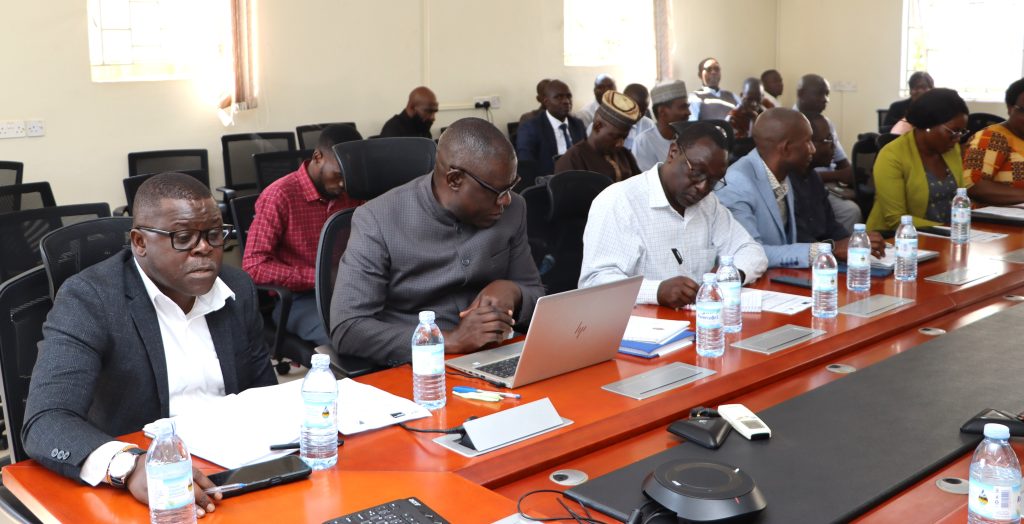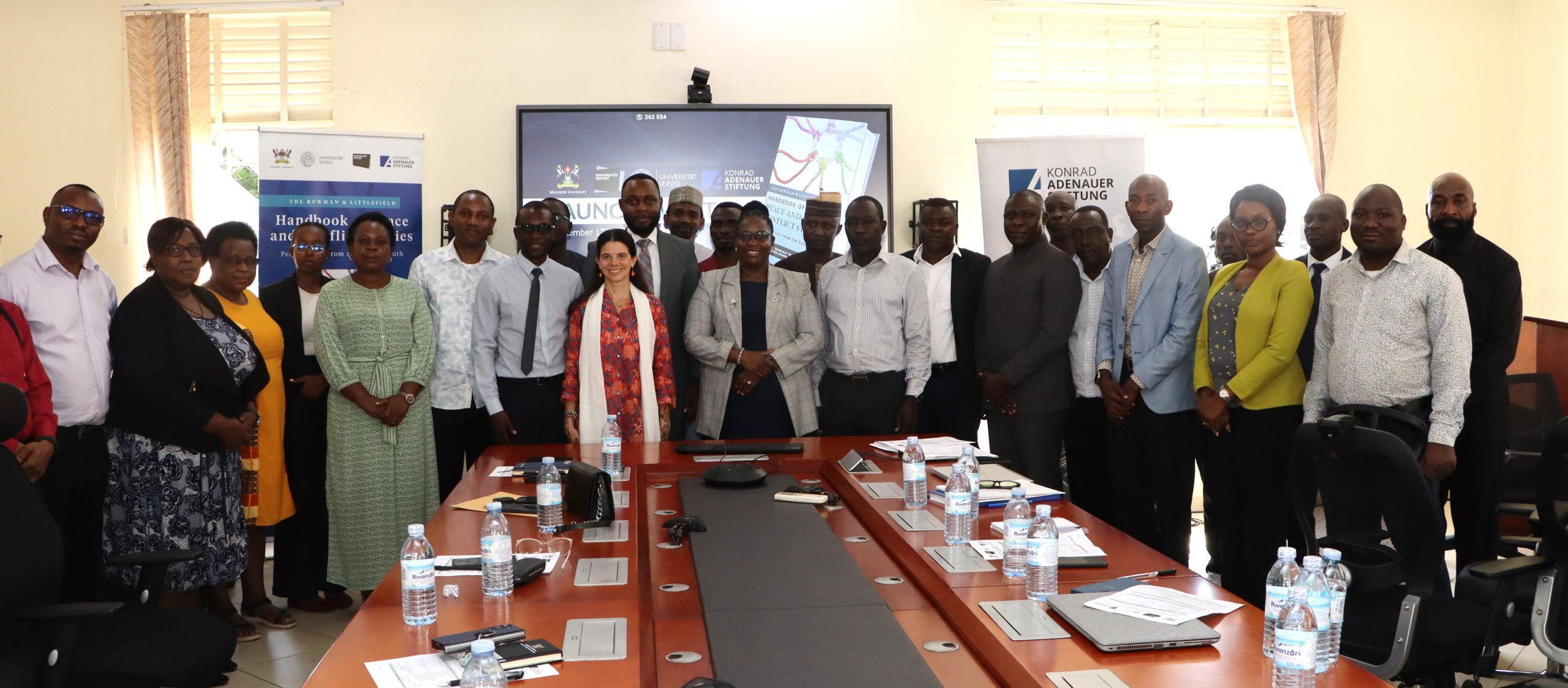KAMPALA, September 17, 2025 — The Makerere University Centre for American Studies, in collaboration with Universität Erfurt, Universität Leipzig, and the Konrad Adenauer Stiftung (KAS), has launched The Rowman & Littlefield Handbook of Peace and Conflict Studies for the Global South.
The hybrid event, hosted in the School of Social Science’s Smart Room, attracted academics, peace practitioners, and development partners. It provided a platform to reflect on the teaching of Peace and Conflict Studies in Uganda and the broader African region, and to develop a shared research agenda for the coming years.
The 500-page open-access handbook, edited by Professors Solveig Richter and Siddart Tripathi, brings together 50 scholars from across the Global South and North. It challenges traditional academic hierarchies in peace research and offers alternative, locally grounded perspectives for addressing contemporary conflicts.
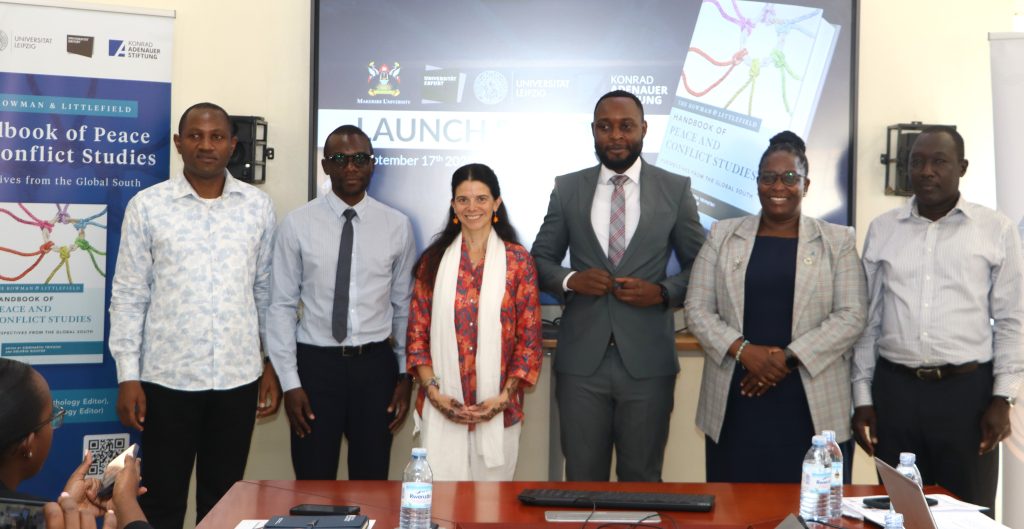
Peace Studies Must Reflect African Realities
The Principal of the College of Humanities and Social Sciences (CHUSS), Prof. Helen Nambalirwa Nkabala, officially opened the event and commended the launch as a significant step in bridging academic scholarship with the realities of African societies.
She explained that peace studies have long been dominated by theories and pedagogies from the Global North, which often fail to capture the lived experiences and conflict dynamics of African communities. She stressed that contextualized knowledge is essential for sustainable peace, adding that Makerere has a proud legacy of nurturing critical scholarship in the humanities and social sciences.
Prof. Nkabala underscored the vital role that CHUSS continues to play in linking research to community transformation. She noted that the College has pioneered peace studies in Uganda since 2003, continuously reforming its curriculum to respond to new conflict trends and peacebuilding approaches.
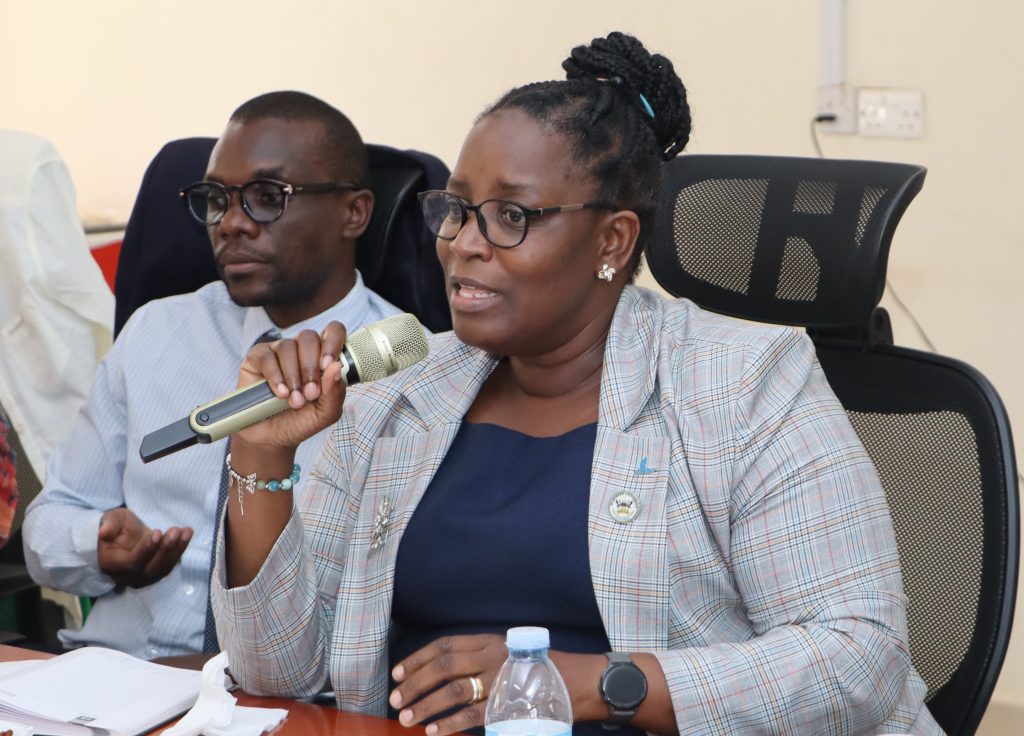
She also acknowledged the long-term partnership between Makerere University and the Konrad Adenauer Stiftung (KAS), which has supported numerous projects aimed at promoting civic engagement, dialogue, and regional stability.
“For too long, peace studies have been taught using perspectives that do not always reflect our own context,” Prof. Nkabala said. “This handbook is clear evidence that peace and conflict studies cannot be taught or practiced in silos.”
“At a time when the humanities and social sciences often face relegation, we remain convinced that we are the bridge between science and society. KAS, you have been very intentional about ensuring that our work reaches communities, and for that we are deeply grateful.”
Interdisciplinary Dialogue Is Key to Peace
The Center Director , and also Head of the Department of Political Science and Public Administration, Prof. Paul Omach, applauded the collaboration between Makerere and its partners for advancing the study of peace and conflict from an interdisciplinary perspective.
He observed that the East and Central African region continues to experience recurrent cycles of political violence, insecurity, and displacement, making peace research more urgent than ever. He noted that universities have a responsibility to equip students with analytical and practical tools to navigate complex conflicts.
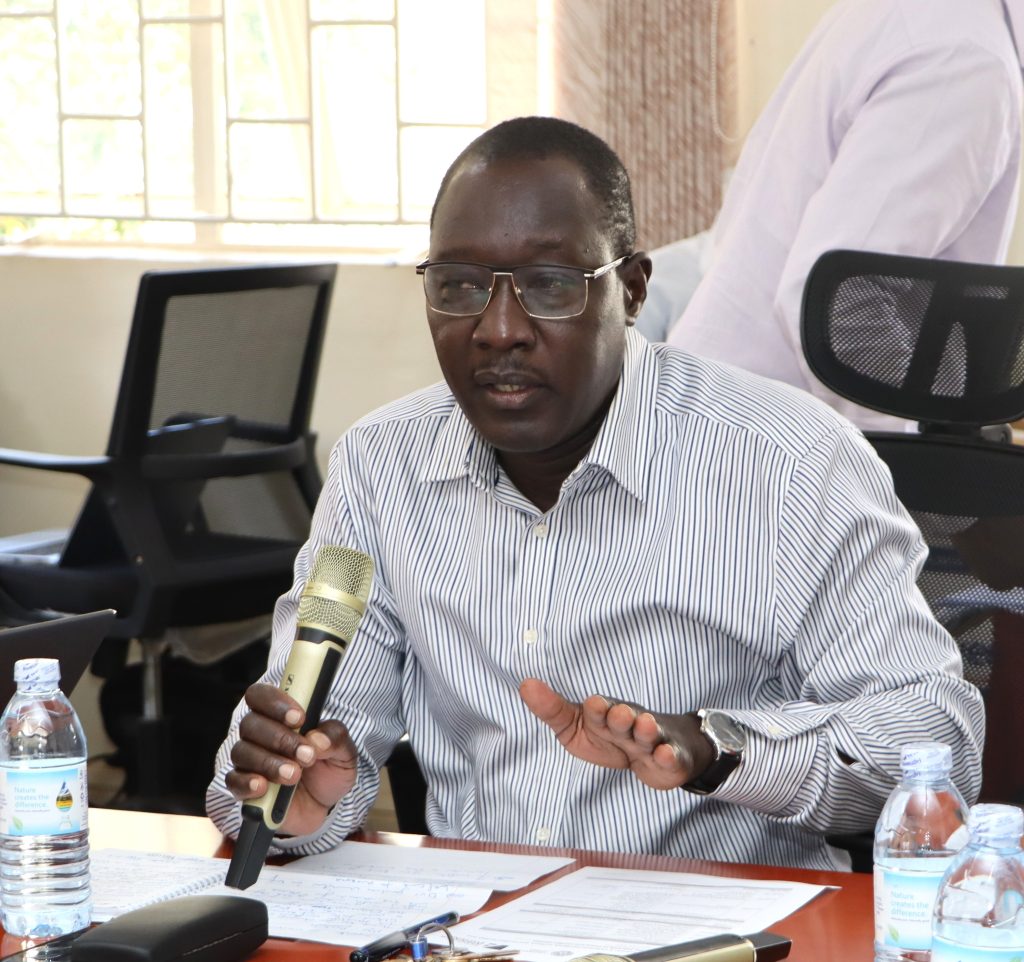
Prof. Omach emphasized that the teaching of peace and conflict should not be confined to one department or discipline but should draw insights from political science, sociology, anthropology, psychology, and gender studies. He also urged universities to link academic work with policy and community-level practice to ensure that research findings inform real change.
“We live in a conflict-ridden region, and the quest for peace has therefore never been more urgent,” Prof. Omach said. “By reading and using this handbook, we can enrich both our scholarship and our teaching.”
“Too often, departments operate as isolated units. Yet issues of peace and conflict are inherently interdisciplinary. We must break down barriers between disciplines and encourage more joint discussions like this one.”
Launch Marks a Milestone in Teaching Peace
Principal Investigator at the Makerere University Centre for American Studies and one of the contributors to the handbook, Dr. Sylvester Kaweesi, described the event as both a celebration and a call to action.
He explained that the day’s activities served two purposes — the official launch of the handbook and a workshop to examine how Peace and Conflict Studies are taught in universities in Uganda and across the region. The workshop, he said, was an opportunity to reflect on progress made since Makerere first introduced Peace Studies as an academic discipline in 2003.
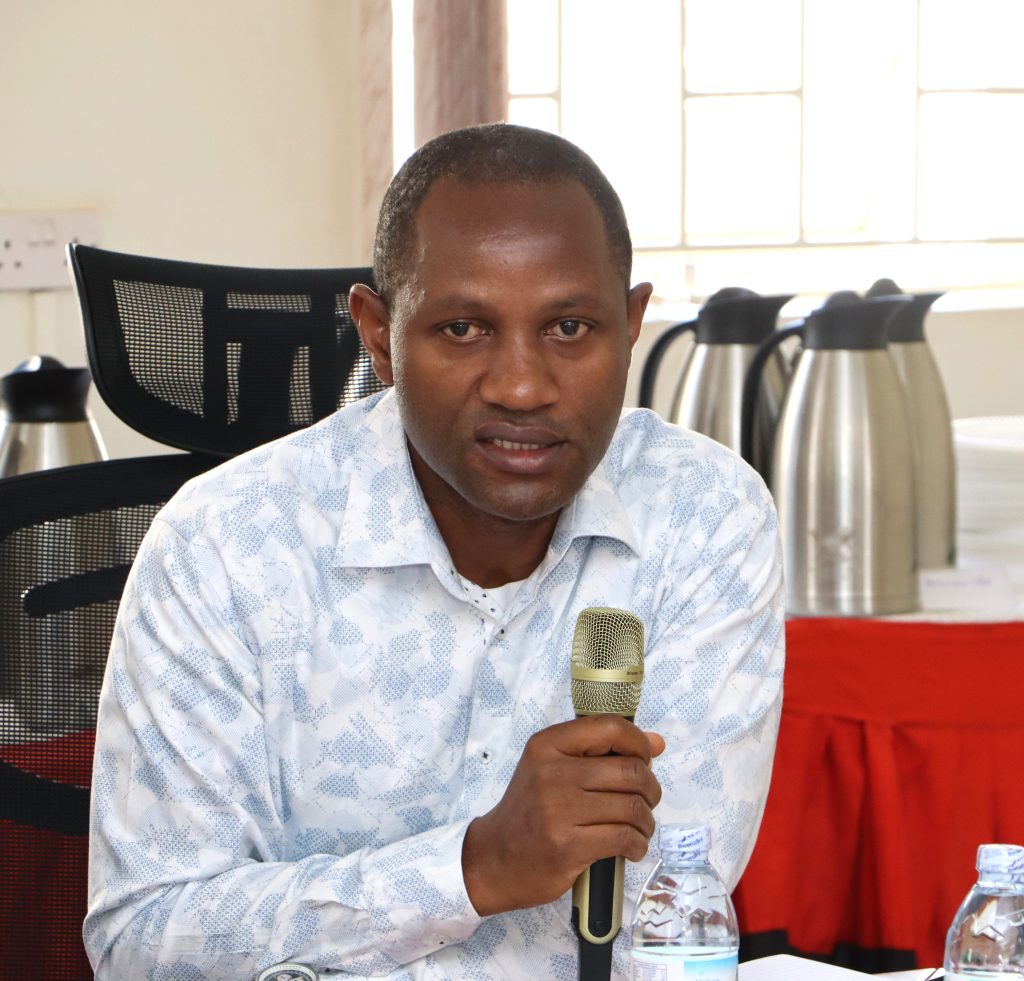
Dr. Kaweesi emphasized that the field remains central to shaping future generations of scholars, policymakers, and practitioners who can manage and prevent conflicts through knowledge-based approaches. He further appreciated the continued partnership of KAS, as well as visiting scholars and institutions that contributed to the project.
“There are two key purposes for our gathering today: the official launch of the handbook and a workshop to engage in an in-depth discussion about how Peace and Conflict Studies is taught in our universities,” he said.
“Institutions committed to advancing peace and security must continue to work together to shape teaching and research that speak to Africa’s realities.”
Amplifying Voices from the Global South
Editor of the handbook and Professor of International Relations and Transnational Politics at Universität Leipzig, Prof. Solveig Richter, traced the origins of the publication to a sustained collaboration between scholars from the Global North and South.
She explained that during her early teaching experiences, she observed that students from Africa, Asia, and Latin America often struggled to relate to theoretical frameworks that were entirely Eurocentric. This realization inspired her and her colleagues to rethink the epistemological foundations of Peace and Conflict Studies and to develop a more inclusive, multi-voiced approach.
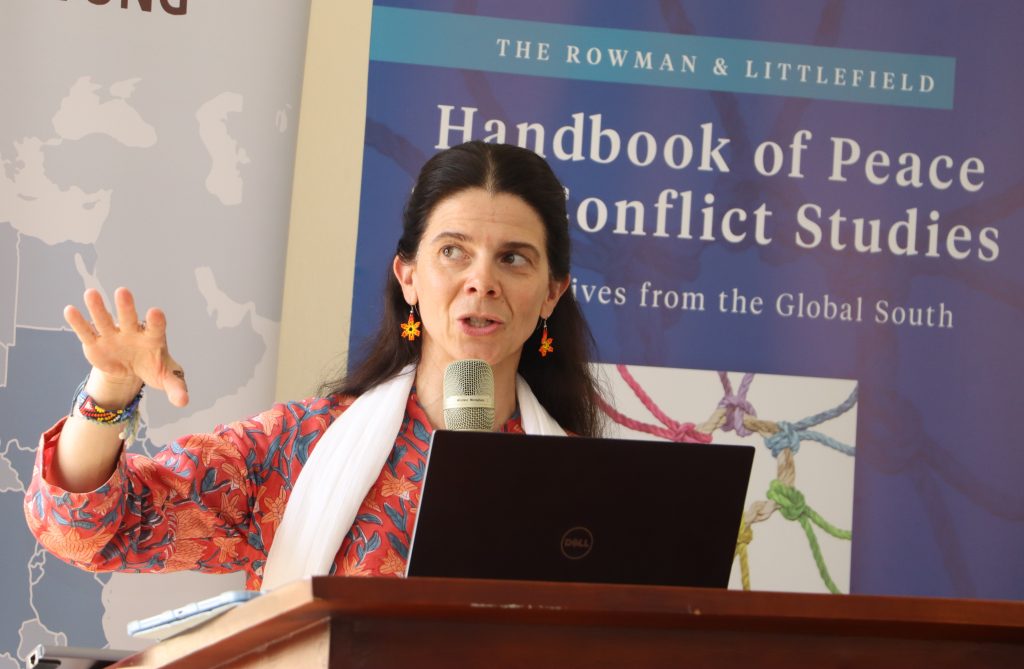
Prof. Richter said the handbook is a result of extensive dialogues held across several continents and is designed as an open-access resource to make knowledge available to all. She emphasized that true transformation in the field will only occur when perspectives from the Global South are not merely included but centered in global discourse.
“This handbook is not an end point but a starting point—a foundation for further research, teaching, and collaboration,” she said.
“Too often, Peace and Conflict Studies rely on theories developed in the Global North. Our aim is to amplify knowledge created in the Global South and make it freely accessible.”
Conflict Research Vital for Global Stability
Representing the Konrad Adenauer Stiftung (KAS), Mr. Edgar Mwine reaffirmed the foundation’s longstanding partnership with Makerere University and its commitment to promoting peace and democracy across Africa.
He explained that KAS views academia as an important platform for advancing evidence-based dialogue and knowledge exchange. Mwine noted that the foundation’s collaborations with Makerere—such as the Kampala Geopolitics Conference and other research initiatives—have helped bridge the gap between policy and scholarship.
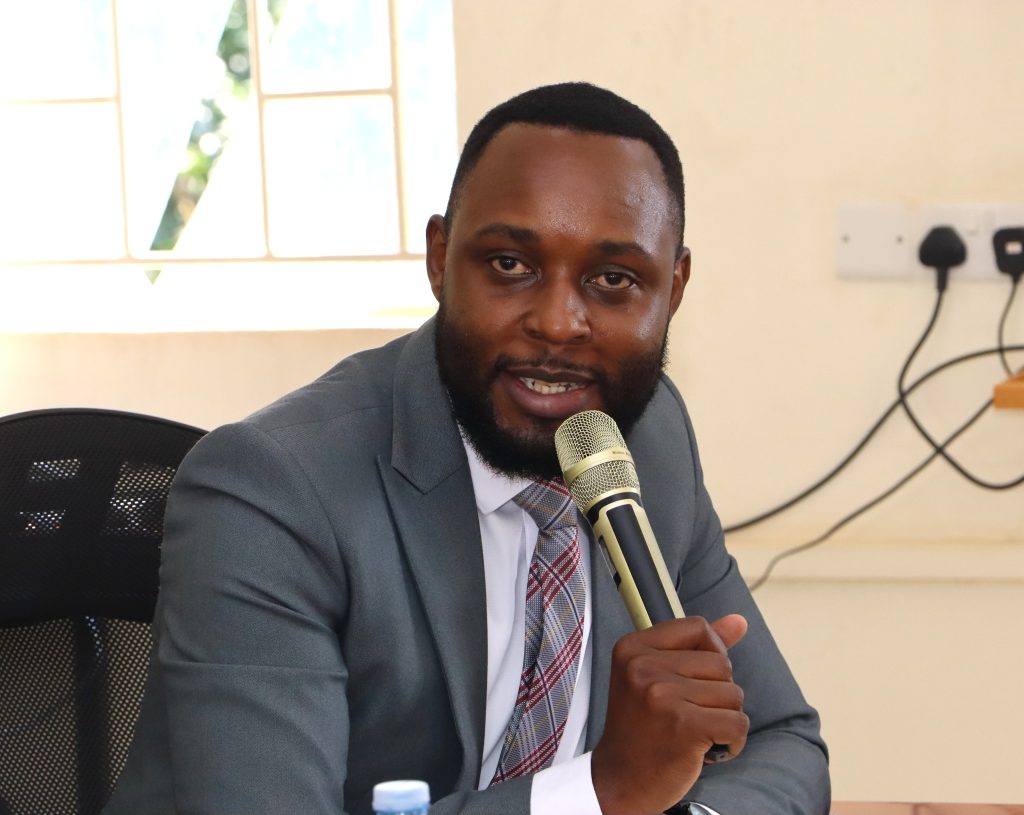
He stressed that peace and security are shared global concerns, and that conflicts in one part of the world inevitably impact others. Mwine urged continued investment in research, education, and partnerships that generate solutions relevant to both the Global North and South.
“Conflicts in the Global North inevitably spill over and affect the Global South. That is why academic research and teaching on peace are not only timely but essential,” he said.
“We are proud to be associated with this important product, which demonstrates that academia has a unique role in bridging seemingly opposing perspectives—just as peace studies bridge conflict and cooperation.”
Bridging Knowledge Gaps Between North and South
Co-editor of the handbook, Dr. Siddart Tripathi, reflected on the intellectual journey that led to the publication, describing it as a response to epistemic inequalities in global academia.
He explained that the project sought to confront historical imbalances in knowledge production that have favored Northern scholarship, often marginalizing voices from the Global South. The editorial team’s vision, he said, was to create a platform where scholars from all backgrounds could contribute equally to defining peace and conflict theory.
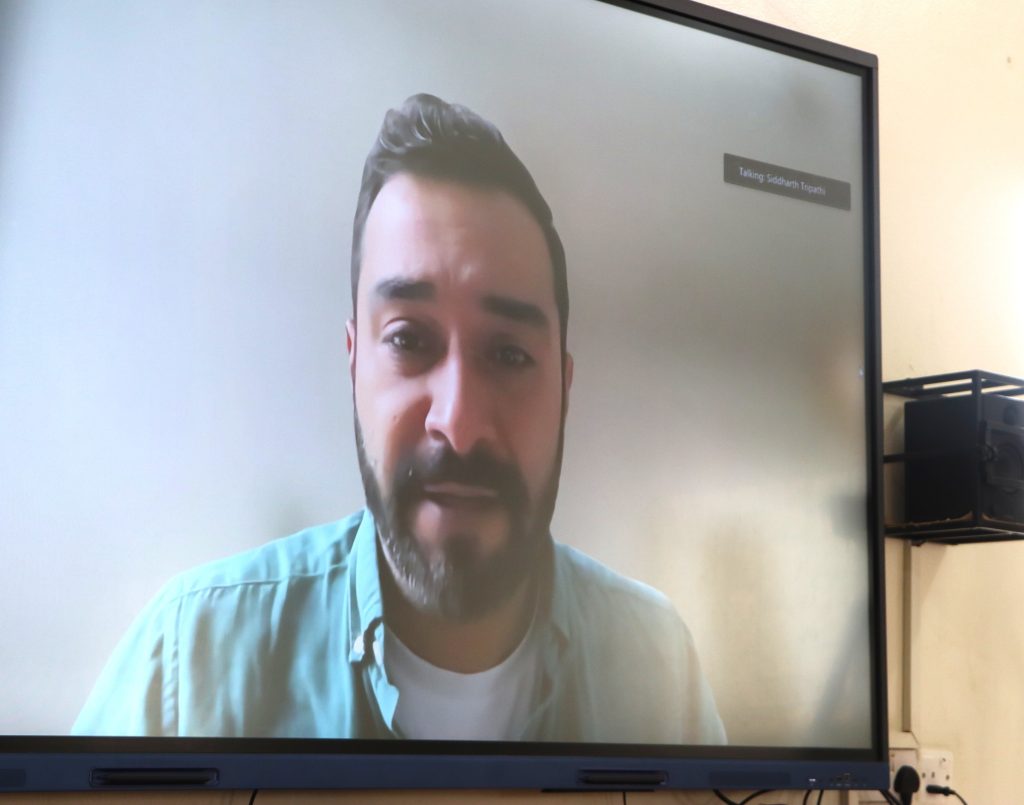
Dr. Tripathi emphasized that the handbook also sought to reframe global academic debates through mutual learning and cooperation rather than competition.
“Our goal was to bridge the gap between scholarly debates in the Global South and Global North,” Dr. Tripathi said.
“We sought to challenge hierarchies in knowledge production and re-center marginalized voices through plural, participatory approaches.”
Dr. Kaweesi’s Chapter Contribution: Peace as Multiple Modernities
In his presentation of a chapter contribution, Dr. Sylvester Kaweesi reflected on the theoretical diversity among scholars of peace and conflict, which he experienced during an earlier workshop in Erfurt, Germany.
He observed that tensions among liberal, decolonial, and hybrid schools of thought often mirror deeper philosophical divides between the Global North and South. Kaweesi argued for what he called “a Fourth Way” of Peace and Conflict Studies—an approach that recognizes peace as a multifaceted, culturally specific concept rather than a universal template.
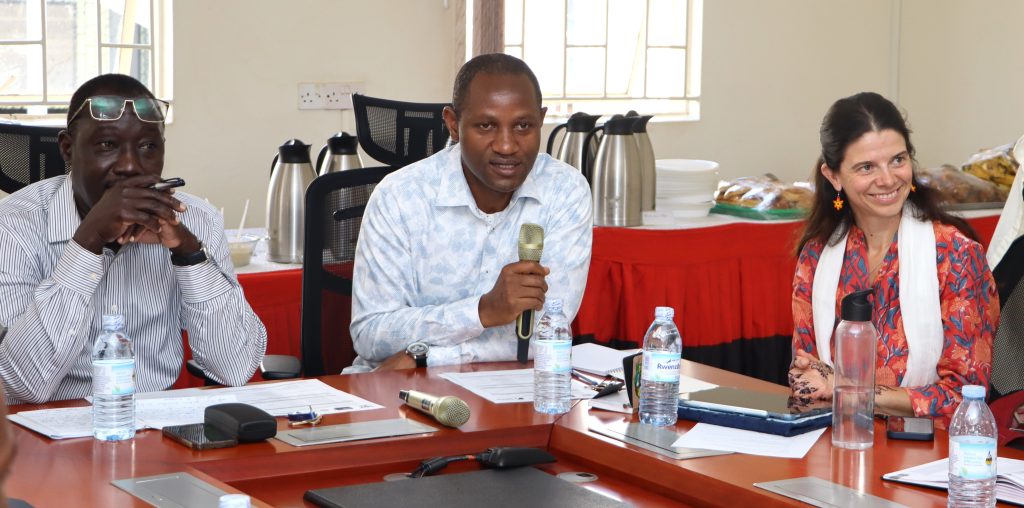
He encouraged African scholars to assert their agency in knowledge creation and to articulate indigenous understandings of peace that are both modern and authentic to local realities.
“Conceptions of peace are not hierarchies—they are innovations developed by different societies,” he said.
“If we see peace as modernity, we begin speaking to each other rather than past one another. Every society’s understanding of peace deserves equal appreciation.”
Workshop Charts Regional Research Priorities
The afternoon session transformed into a workshop moderated by Prof. Philip Kasaija and Dr. George Okiror, featuring two panel discussions on teaching, research, and curriculum development in Peace and Conflict Studies.
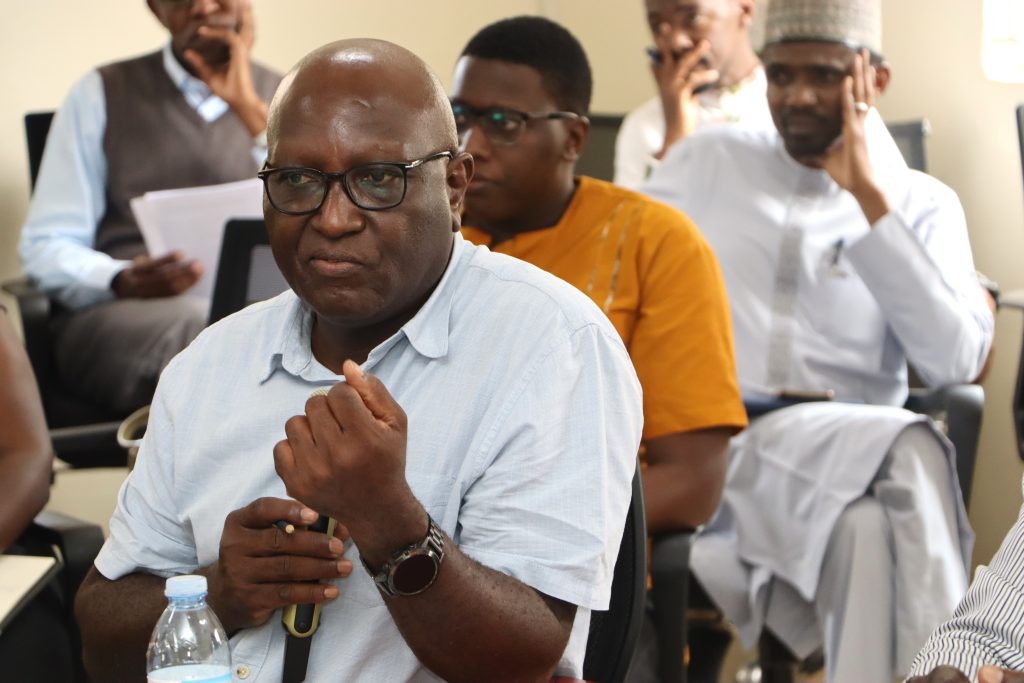
Participants included scholars from Makerere University, Uganda Martyrs University, Cavendish University, Islamic University in Uganda, and Uganda Christian University, among others. Representatives from the Uganda People’s Defence Forces (UPDF) and peace practitioners also contributed their perspectives.
Discussions covered curriculum alignment, teaching methodologies, interdisciplinary linkages, and the importance of integrating field experience into academic programs.
The workshop further identified emerging research themes including research on everyday realities of conflict, researching the African force of peace, artificial intelligence in peace and conflict as part of the emerging trends, pedagogies of peace and conflict studies, innovating contextual tools for peace, the youth agency in peace, building the agency of the victims of war, and then issues to do with resilience, integration or rehabilitation of ex-combatants. Other suggested themes were the alternatives to the military-inclined demobilization, globalization and conflict, religion and conflict, ideologies and conflict, auditing of the implementation of the indigenous approaches to conflict resolution, such as gacaca, and interrogating or revisiting the question of violence.
Panelists agreed on the need to strengthen South–South academic networks, promote publication platforms within Africa, and ensure gender and youth inclusion in research
